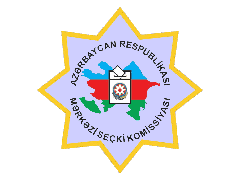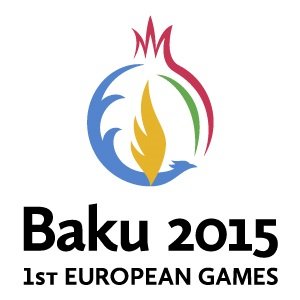NEWS
-
30.11.2021
After two years, Azerbaijan Fashion Week comes back to the City of Winds. The 11th season promises to be even more spectacular than previous ones.
The large-scale event will take place at Hilton Baku Hotel on December 2-3. In 2019, Azerbaijan Fashion Week celebrated its 10th anniversary
"Two years have passed since then, two difficult and very important years for the world and the country. This is a time of great transformations, bitter losses and such long-awaited victories. - Azerbaijan's victory in the 2020 Patriotic War and the return of Karabakh," the message said.
Global and local events could not but affect the fashion industry in general and fashion processes in Azerbaijan in particular, because fashion is an honest mirror of time and an absolute reflection of the society.
Being an annual large-scale fashion project, Azerbaijan Fashion Week suspended its work for two whole years for objective reasons such as the coronavirus pandemic.
Today, when the fight against coronavirus in the world and in the country has reached a new level, and most importantly, when Azerbaijan returned its territories. A new life has already started and fashion returned as well.
That is why the slogan of the current Azerbaijan Fashion Week sounds loudly and proudly: "Return".
Khari Bulbul, an endemic flower growing in Karabakh, has become the symbol of the upcoming season.
Azerbaijani and Kazakh fashion houses and designers Fakhriya Khalafova, Amelie, Nubi, Lora Atelier, Mario Russo, K.Fabuel, Lora, Libas, Nara Eyvazova, Giedi, Alex Chzhen (Kazakhstan), Hanym (Kazakhstan), Volskata Atelier (Kazakhstan) have already confirmed their participation in the Azerbaijan Fashion Week.
In May 2015, the first season of Azerbaijan Fashion Week took place in Azerbaijan, which marked the beginning of the Fashion Weeks in the country.
The large-scale project became the primary reason for the emergence of the fashion market as such in the country, because the few fashion designers who existed at that time were scattered throughout their activities, making considerable efforts to promote themselves.
Azerbaijan Fashion Week has become exactly the platform that united the efforts of all those who work in the field of fashion, becoming a platform that brought together designers, buyers, local and foreign press, as well as all fashionistas.
Over the ten seasons, Azerbaijan Fashion Week has retained the status of the most important fashion event in Azerbaijan.
-
A classical music concert has been held at the Berlin Philharmonic Hall.
The concert "Eternity" celebrated the 880th anniversary of the great Azerbaijani poet and thinker Nizami Ganjavi and the first anniversary of Azerbaijan's Victory in the Patriotic War.
More than a thousand guests, cultural figures, representatives of the diplomatic corps, business circles and mass media attended the event co-organized by the Azerbaijan State Committee for Work with the Diaspora, the Fund for Support of the Azerbaijani Diaspora and the Azerbaijani Embassy in Germany.
Speaking about Nizami's legacy, the Azerbaijani Ambassador to Germany Ramin Hasanov stressed that President of Azerbaijan Ilham Aliyev has declared 2021 the Year of Nizami Ganjavi.
The Ambassador recalled Nizami's "Khamsa" was a model for many prominent figures of Eastern literature and Western thinkers.
It is no coincidence that the great German writer and philosopher Johann Wolfgang Goethe touched upon Nizami's legacy in the West-Eastern Divan.
The diplomat also noted that it is symbolic that the concert was held under the baton of the maestro Yalchin Adigozalov, a prominent representative of the Shusha performing school.
Deputy Chairman of the Azerbaijan State Committee for Work with the Diaspora Elshad Aliyev spoke about the special attention of the country's leadership to the daily activities of the committee.
As a result, over 100 events dedicated were successfully held by the Azerbaijan State Committee for Work with the Diaspora within the Year of Nizami Ganjavi.
Moreover, the committee celebrated Azerbaijan's Victory Day (Nov 8) with more than 150 events this month.
In conclusion, Elshad Aliyev expressed his gratitude to compatriots, members of friendly communities and everyone who supports Azerbaijan's fair position.
The Cologne Youth Symphony Orchestra (Junge Philharmonie Koln) performed with an extensive program.
The concert featured music pieces by Uzeyir Hajibayli, Gara Garayev, Fikrat Amirov, Vasif Adigozalov, Niyazi, Giacomo Puccini and others.
The soloists included People's Artist of Azerbaijan Avez Abdulla (Mannheim Opera House), soprano Seljan Nasibli, mugham singers Kamil Nabiyev and Miralam Miralamov, Honored Artist Aliaga Sadiyev (tar) and violinist Anar Bramo.
The concert ended with a song "Shusha" by Anar Bramo and Vasif Adigozalov's oratorio "Karabakh Shikestesi".
The event was a great success and left no one indifferent.
-
Icharishahar and Lahore City Administration have signed Friendship and Cooperation treaty.
The document is expected to strengthen cultural and economic ties between Azerbaijan and Pakistan.
The protocol covers partnership in art, culture, tourism, science and history, joint projects as well as exchange of experience.
After the signing ceremony, the sides discussed prospects of cooperation between Icharishahar and Lahore.
Notably, the delegation headed by the chairman of the Icharishahar State Historical and Architectural Reserve Administration Askar Alakbarov arrived in Pakistan.
Within the three-day visit, Askar Alakbarov held a number of meeting aimed at strengthening bilateral ties.
Azerbaijani delegation also visited historical sites in Lahore and got acquainted with the products of the famous Pakistani brand "Khaadi".
Earlier, Icharishahar State Historical-Architectural Reserve has expanded ties with Itchan Kala Reserve Museum in Uzbekistan.
A working meeting was held between chairman of the Icharishahar Reserve Board Asgar Alakbarov and Uzbek Ambassador in Azerbaijan Bakhrom Ashrafkhanov
The sides discussed cultural and historical ties between the two countries, as well as opportunities for cooperation in various fields.
The Reserve also signed a protocol on friendship and cooperation with the Italy's Matera Municipality.
The protocol aims at expanding economic, social and cultural ties between the Old City and the city of Matera.
In July, Icharishahar took part in the 4th Monument Manager Forum that brought together over 80 site managers, the World Heritage Centre, ICCROM, ICOMOS, IUCN and representatives of various institutions took part in the forum.
The forum discussed the World Heritage system looking at key actors and processes. The UNESCO World Heritage Centre and the three AdvisoryBodies - ICCROM, ICOMOS, IUCN – presented their work within the framework of the World Heritage Convention and shared key tools and resources.
Icherisheher was included in the UNESCO World Heritage List, along with Shirvanshahs Palace and Maiden Tower at the 24th session of UNESCO in Kearns, Australia.
-
30.11.2021
A documentary "The Last One" has been named best in Belarus. The film won Genre Loyalty Award at Minsk International Film Festival Listapad.
Listapad Film Festival is the biggest and high-status cinema event held annually in November.
The festival's main competitions focus on new films created in former socialistic countries, including CIS countries, Central and South-East Asia, Baltic, Eastern and Central Europe.
The documentary also won Kazimierz Karabasz Award at Media Festival Man in Danger in Poland.
The festival is an annual event in Lodz, which awards documentary films, TV reports and radio reports. The festival has been taking place since 1990.
"The Last One" is about the last inhabitant of the Kurdili island, Vitaly Pronin. In 1981, as a result of rising water levels in the Caspian Sea, Kurdili, once a bustling island, became uninhabitable. Most of the population moved from the island. No one lived there anymore except for 68-years-old Vitaly.
The film was produced by the Baku Media Center and "Salnamefilm" studio with the support of the Azerbaijan Culture Ministry.
Executive producer of the film is Arzu Aliyeva, producers - Orman Aliyev and Nazim Huseynov, film director-Fariz Ahmadov, scriptwriters - Esmira Ayyub and Fariz Ahmadov, cinematographer -Mateusz Czuchnowski.
After its premiere at the Rotterdam International Film Festival 202, the documentary has been presented at prestigious festivals.
The film won Golden Maple Award for Best Documentary at the 15th Jahorina Film Festival in Bosnia and Herzegovina.
-
President of the International Turkic Culture and Heritage Foundation Gunay Afandiyeva has paid a working visit to Poland
The visit focuses on strengthening cooperation between the Foundation and the country and preserving the material and cultural heritage of the Turkic national minorities living in Poland - Tatars and Karaites.
During her visit to Poland, Gunay Afandiyeva met with the Azerbaijani Ambassador to Poland Nargiz Gurbanova and the Turksih Ambassador Cengiz Kamil Firat.
The sides discussed the importance of strengthening relations between the Turkic-speaking peoples, as well as the impact of the steps to be taken in this direction on the development of the culture of the Turkic world.
Gunay Afandiyeva also met with students of the University of Warsaw studying the Azerbaijani language and teachers of the faculty of Turkology functioning there.
During her visit to university, she informed the students about the International Turkic Culture and Heritage Foundation which carries out activities for the promotion and protection of cultural values of the Turkic world.
President of the Foundation talked with students and professors about the centuries-old history, rich heritage of the Turkic people.
The meeting participants stressed the importance of future joint events and projects for expanding ties.
Initiated in 2012, Turkic Culture and Heritage Foundation focuses on preservation of Turkic heritage in member countries as well as conducting projects in collaboration with partners in third countries.
The Foundation provides assistance in the protection, study and promotion of Turkic culture and heritage through supporting and funding various activities, projects and programs. It carries out its activities in cooperation with TURKSOY and the Turkic Academy.
Cooperation Council of the Turkic Speaking States (CCTSS) is an intergovernmental organization, which aims at promoting comprehensive cooperation among Turkic Speaking States.
The organization was established by the Nakhchivan Agreement, which was signed at the Turkic Summit in 2009.
In order to fulfill the objectives and tasks of the CCTSS, the organization has been divided into the following structures: Council of Heads of States; Council of Foreign Ministers, Senior Officials Committee, Council of Elders, Secretariat, Coordination Committee, Representation Office of the Turkic Council in Budapest.
-
26.11.2021
Nizami Ganjavi's masterpiece "Khamsa" has been translated into the Uzbek language. The book was presented in Baku within the Nizami Ganjavi International Forum.
Director of the Heydar Aliyev Cultural Center in Uzbekistan Samir Abbasov greeted the participants and gave the floor to First Deputy Minister of Culture Elnur Aliyev.
In his speech, the Deputy Minister said that Nizami Ganjavi serves as a bridge between the Turkic peoples. The poet united the Turkic and Persian-speaking peoples living in the region.
"Today we are witnessing the greatness of Turkish culture both geographically and historically. Now we have gathered for the presentation of "Khamsa" translated with the support of the Culture Ministries of the two countries and the Heydar Aliyev Cultural Center in Uzbekistan. This was once again a very important step for the wider dissemination of Nizami's works in modern Uzbekistan," said Elnur Aliyev
The Uzbek Ambassador to Azerbaijan Bahrom Ashrafkhanov underlined that Nizami Ganjavi's poetry has always been of great interest in Uzbekistan.
"In 1936, Tashkent State Pedagogical University was named after the great Nizami Ganjavi. In 2004, a bust of the great poet was unveiled in front of the university in Tashkent. The ceremony was attended by the President of Azerbaijan Ilham Aliyev and the President of Uzbekistan Islam Karimov. The great Uzbek poet Alisher Navoi considered Nizami Ganjavi as his master and inspiration...," the Ambassador said.
Professor of Tashkent University Erkin Nuriddinov said that the Heydar Aliyev Cultural Center in Uzbekistan and the People's Poet of Uzbekistan Jamal Kamal translated Nizami's "Khamsa" into Uzbek.
Special editorial board was established under the leadership of Jamal Kamal. The poems "Treasure of Secrets", "Khosrov and Shirin", "Leyli and Majnun", "Iskandarname", "Seven Beauties" included in "Khamsa" were translated from the original.
Speaking at the event, director general of the Institute of Manuscripts Teymur Karimli noted that Nizami's first translation into Uzbek began in the 13th century with the poem "Khosrov and Shirin". Now Nizami's genius ideas are fully translated into Uzbek.
The academician pointed out that the concept of love and ideological-aesthetic solution in Nizami's poem "Khosrov and Shirin" turned into one of the main indicators of the poet's groundbreaking style.
"Nizami proposed the law of universal gravitation 500 years before Newton. Azerbaijani poet, who called this gravity "love", affirmed that there is an unbreakable link between natural phenomena and human relations," said Karimli.
He also noted that the book "Khosrov and Shirin", published in Uzbek, contains unique miniatures kept in various world-famous museums and libraries, including the Institute of Manuscripts, the British Museum, the St. Petersburg State Public Library, the St. Petersburg branch of the Institute of Oriental Studies as well as the Museum of Azerbaijani Literature.
Adviser to the chairman of the Azerbaijan Writers' Union Sayman Aruz, professor of the National University of Uzbekistan Hamidulla Baltabaev, employee of the Institute of Literature Tahmina Badalova, professor of the Uzbek State University Nigina Shermuhammedova, professor of the Institute of Manuscripts Karimulla Mammadzade and other spoke about Nizami's philosophy.
Meanwhile, Nizami Ganjavi International Forum will last until November 26.
The forum features panel discussions on multiple topics such as "The influence of Nizami's work on the political and social traditions of the medieval East", "Nizami Ganjavi: a view of the modern world" and others", etc.
Within the forum, it is also planned to organize a wide range of events, including book presentations, bilateral meetings and much more.
-
Youth support has celebrated its fifth anniversary with a gala concert.
Initiated by the Azerbaijan State Philharmonic Hall, "Youth Support" project aims at discovering and supporting young talents in Azerbaijan.
The project is headed by the director of the State Philharmonic Hall, People's Artist of Azerbaijan Murad Adigozalzade, and the project coordinator is Ayla Karimova-Zekeriyye.
"Youth Support" project addresses the wide audience with different tastes. Numerous concerts organized within the project have always been met with great public interest.
Laureates of republican and international competitions Osman Mustafazade, Ozjan Jabbari, Jamal Abdinzade, Zumrud Alizade, Asim Rzazade, Huseyn Nagiyev,Vagif Gurbanov, Jalala Ismayilzade, Ali Muradov, Teymur Kazimov, Nadir Guliyev and others performed at the gala concert.
Young musicians were accompanied by the Azerbaijan State Chamber Orchestra under the baton of Orkhan Gashimov.
The evening featured works by famous composers, as well as a work written by a young author Yusif Abbasov and Lala Ahmadova.
In conclusion, Lumineux ensemble performed a hymn specially written for the project`s anniversary to the music of Pike Akhundova and words by Aysel Karimi.
The gala concert was highly appreciated by the audience.
-
UNESCO will celebrate the birthday anniversaries of Azerbaijan's prominent figures.
The organization will mark the bicentenary of the great philanthropist and oil magnate Haji Zeynalabdin Taghiyev and the centenary of the outstanding composer Fikrat Amirov.
The decision was announced at the 41st UNESCO General Conference in Paris.
As a result of joint activities of the Culture Ministry, the Foreign Ministry, Azerbaijan's Permanent Mission to UNESCO and the National Commission for UNESCO, the relevant nomination documents were submitted to UNESCO. The events have been included in the program of anniversaries for 2022-2023.
Hajji Zeynalabdin Taghiyev invested in many important projects such as the first textile factory and fisheries. He sponsored the first Azerbaijan National Theater (1883), the first Muslim School for Girls (1896), the first Technical School (1911) and covered all the expenses for the construction of what would later become the Azerbaijan State Academic Opera and Ballet Theater.
He also helped to solve the water crisis in the city by helping to finance the Shollar water pipeline (1916).
Baku's best-known philanthropist allocated 11,000 old roubles for the construction of the head office for the Muslim Benevolent Society in Saint Petersburg, 3,000 roubles for the education of Armenian orphans, 5,000 for the St. Nina's School for Girls in Baku, 10,000 roubles for the construction of the Alexander Nevsky Cathedral in Baku, tens of thousands of roubles for the construction and repair of mosques and madrasas throughout Russia and Persia.
Taghiyev also provided scholarships for many talented young people who strove for higher education in prestigious Russian and European universities. He built a number of schools and gave a lot of attention to mosques since he considered them to be centers for enlightenment, culture and science.
For his outstanding contributions, Taghiyev was twice awarded with the Order of Saint Stanislaus, as well as with a number of other orders and medals from many countries.
Fikrat Amirov wrote the first Azerbaijani lyrical-psychological opera on a contemporary theme. In the opera "Sevil", the composer used a variety of musical forms in the opera.
Amirov's symphonic Mughams "Shur’ and "Kurd Ovshari" are unprecedented in the history of world music.
The wide artistic interest of Amirov included operas, ballets, symphonies, symphonic poems, symphonic mugham, suites, capriccio, piano concertos, sonatas, musical comedies, songs, love songs, piano pieces, music for dramatic productions, and movies.
His works revolve around social and ethical issues, disclose the spiritual world of the people and record their life in the past and present. Mankind’s inner world with all its joys and sorrows takes a special place in his works.
-
26.11.2021
As the leaves start changing their shades, everything takes on a whole new vibe. With its bright colors, autumn season inspires photographers to embrace outdoors.
More than 60 photographers from different countries have captured the most striking season of the year.
These photographers were showcased at the Russian Information and Cultural Center in Baku.
In his speech, the curator Rustam Huseynov, noted the most interesting photographs. He thanked the project participants and wished them further success.
The Russian Cultural Center awarded the authors of the best three photo works.
The first place went to Valery Bazrukh for his photograph "Autumn in the Khizi Mountains".
Alexander Belayev's photo work "Colors of Autumn" took the second place, while Elshan Yusibov ranked third with his photo "Golden Autumn".
With its colorful works and balanced exposition, the exhibition aroused great interest among both professionals and photography enthusiasts.
The photographers brilliantly expressed the autumn season in all its beauty. All project participants received certificates. The winners were awarded with diplomas and gifts.
The "Golden Autumn" photo exhibition will run until November 30.
-
25.11.2021
Architect Rasim Aliyev was a giant of a man, a larger-than-life personality whose innate talent was too immense to confine him to one single realm of human creativity. He was a figure who defined the age in which he lived, and his recent death marked the end of an epoch in the history of Azerbaijani architecture of which he was a revered patriarch.
As an architect, he combined two essential parts. He was a constructor who excelled at majestically bringing essential units into one holistic entity with an application of strict rationalism, yet the second side of his personality embodied a talented painter, who generated a vast array of new ideas feeding the soul of his art. A fine balance of these two components is essential to the makings of a great artist, and in Rasim Aliyev's person, they were in equal harmony.
Rasim Aliyev was born to be an architect. An aptitude for arts ran in the family. His father, academician Hasan Aliyev, loved to paint in his youth, whereas his uncle Huseyn Aliyev was a professional painter. It was his other uncle, Heydar Aliyev, who studied architecture at university, that had an undeniable influence on his life-defining choice. In fact, one may say Rasim Aliyev's rise as an architect was the realisation of accumulated creative genius within two generations of Aliyevs.
One of the brightest prodigies of his time, young Rasim was ready to take on challenges, and his first significant test came when, in accordance with the plan to redesign certain squares in Moscow by architects from the Union Republics, Taganskaya Square was allocated to the Azerbaijan SSR. Three young architects, including Rasim Aliyev, were called on to accomplish the task. The project was successfully completed and approved by the Central Committee but, due to an obscure and poorly understood set of reasons, the idea was later archived and never brought back. Young Rasim was brave enough to accept the challenge and worked flat out and round the clock to play his role in the grand project, yet when he heard that the plan was no longer underway, he remained indefatigable and braced himself for a new challenge.
Rasim Aliyev was a man of free spirit. As Anar, a famous Azerbaijani writer wrote in his foreword to "Rasim Aliyev: Memories" authored by Salim Babullaoghlu, the distinguished architect's "proud self-esteem did not accept any custody". He was a man who used to say what he believed to be right. Rasim Aliyev quickly found that his outlook and views on architecture were incompatible with official Soviet ideology, and he stated that "an architect could not reveal his creativity once being stuck in a standard project". He believed that the primitiveness offered in lieu of "Stalinist decoration" under Krushchev was alien to the true spirit of art.
As an architect, Rasim Aliyev found the artificial transformation of old structures into a "national style", by means of the application of various ornaments and motifs, to be a hopeless task. One of the modern examples of Baku's architecture, “Guest House", built on the basis of Rasim Aliyev's project, exemplifies his artistic vision. The building is a true adaptation of the Azerbaijani national style, incorporating the achievements of world architecture. Located in the midst of beautiful scenery and graced with pure proportional lines, the "Guest House" is a piece of art to be relished by posterity.
The building of the Azerbaijani embassy in Ankara, renowned for its compact architectural solution designed to suit the purpose of diplomatic functionality, is another example of Rasim Aliyev's genius. While designing Huseyn Javid's mausoleum in Nakhchivan, the architect managed to achieve the uniquely complex task of creating a new piece of art without being disloyal to the heritage ingrained in classical monuments such as the Momina Khatun Mausoleum and the tomb of Yusif Ibn Kuseyir, created by great Abubakr Ajami.
Rasim Aliyev was a visionary man, who excelled as an urban planner and town builder. He had a conceptual view for Baku, based on the idea that a city should have its own unique soul, embodied in its architecturally harmonious core. The harmony of the inner sanctum should be projected into a wider city, creating an ensemble of building units coalescing into oneness. He took an active part in the restoration of Bukhara and Multani caravansaries in "Ichari shahar" (Old City), the house of poet and painter Natavan in Shusha, buildings in Guba and the Palace of the Shaki Khans, amongst others.
During his tenures as deputy chief architect and then chief architect of Baku, he successfully oversaw the gradual expansion of the city and led the process of designing many micro-districts in Baku and Ahmadli settlement. The detailed plan for the reconstruction of "Ichari shahar" was developed with his participation.
In addition to being a great architect, Rasim Aliyev was a consummate connoisseur of jazz and a mugham aficionado. Those who were privileged to know him in person recall that he was noble in demeanour, yet very grounded. He was a friend to be relied upon in times of need. Always tastefully and elegantly dressed, he was a gentleman of impeccable taste.
Having found himself in front of gargantuan tasks on numerous occasions, he sometimes might have appeared to be wistful or melancholic, yet his acquaintances recall his unbridled enthusiasm and spirit.
May the soul of the Great Man rest in peace amidst the glorious cities of heaven.



.png?v=DqKtbngFu8-eBM77oNP77E2SV2gNF4_tUk0Y9IcK12s)

















